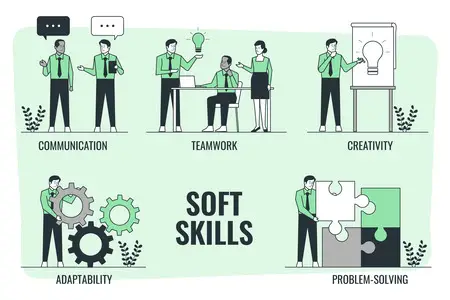Introduction:
Embarking on a PhD journey is both rewarding and challenging. It requires perseverance, adaptability, and a continuous learning mindset. Throughout my research, I encountered numerous obstacles, but along the way, I discovered three key lessons that significantly improved my efficiency and overall experience. Setting realistic goals, keeping things simple, and developing essential soft skills were fundamental to navigating the complexities of a PhD. In this article, I will share how these lessons shaped my research approach and how they can help current and future PhD students stay on track and achieve success.
1. Set realistic goals:
Setting realistic goals is crucial for maintaining your focus, motivation, and overall progress during your PhD research. It’s essential to avoid overwhelming yourself with too many tasks or aiming for unrealistic milestones. Here’s how you can implement this lesson:
Action #1: Break down your research project into smaller, manageable tasks or milestones. These could be weekly or monthly objectives that contribute to your larger research goals.
Action #2: Prioritize your tasks based on their importance and deadlines. This will help you allocate your time and resources more effectively.
Action #3: Regularly reassess and adjust your goals as you make progress and gain new insights. Flexibility is key in accommodating unexpected challenges.


2. Keep things simple:
Simplicity in your research approach, methodologies, and communication can enhance your ability to understand complex concepts and convey them effectively to others. Here’s how you can apply this lesson:
Action #1: Streamline your research methodologies. Focus on using methods that are well-suited to your research questions and can provide clear results.
Action #2: Avoid unnecessary complexity in your writing. Use concise language and structure your arguments logically to make your research more accessible to both experts and non-experts.
Action #3: Embrace visual aids, such as diagrams and graphs, to simplify the presentation of intricate ideas and data.
3. Improve your soft skills:
Soft skills, such as communication, teamwork, and time management, are invaluable assets during your PhD research and beyond. Developing these skills can enhance your collaboration, increase your productivity, and improve your career prospects. Here’s how you can enhance your soft skills:
Action #1: Participate in workshops or training sessions focused on communication skills. Practice explaining your research to both technical and non-technical audiences.
Action #2: Collaborate with colleagues on research projects or presentations to improve your teamwork and interpersonal skills.
Action #3: Create a structured schedule that allows you to manage your time effectively. Balancing research, writing, and other commitments demonstrates your ability to meet deadlines.

